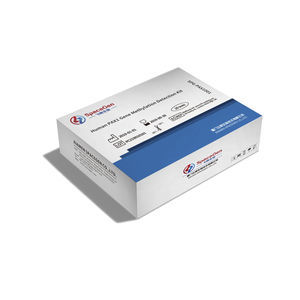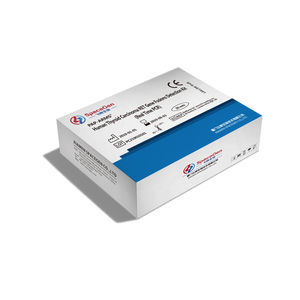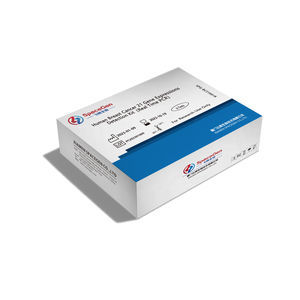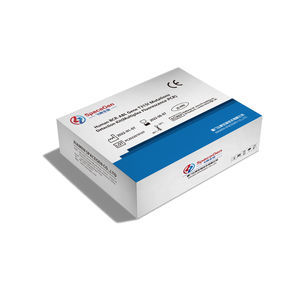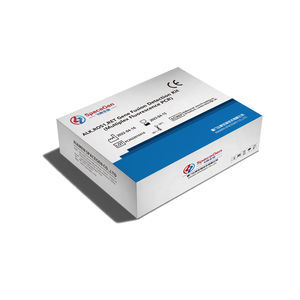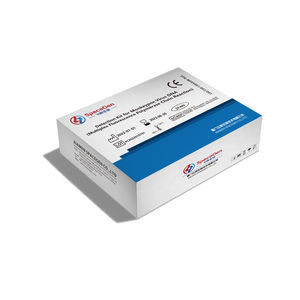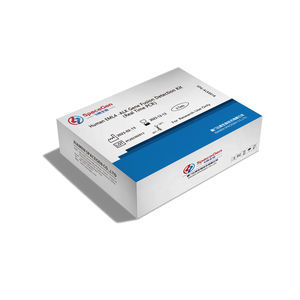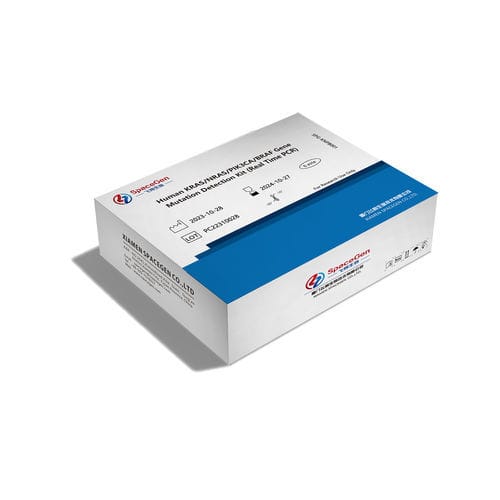

- Company
- Products
- Catalogs
- News & Trends
- Exhibitions
Research detection kit PC22310028colorectal canceroncologyfor BRAF mutations
Add to favorites
Compare this product
Characteristics
- Applications
- for research, colorectal cancer
- Application field
- oncology
- Tested parameter
- for BRAF mutations, for KRAS mutations, for NRAS mutations, EGFR, for PIK3CA Gene, aspirin
- Sample type
- cell
- Analysis mode
- for qPCR
Description
KRAS, NRAS, PIK3CA and BRAF genes are four important genes in the EGFR downstream signaling pathways - RAS-RAF-MEK pathway and PI3K-AKT pathway. Mutations in the above genes will lead to continued activation of downstream signaling pathways, thereby causing abnormal cell proliferation and differentiation, ultimately leading to the occurrence and development of tumors.
Mutations in KRAS, NRAS, PIK3CA and BRAF genes occur in a variety of malignant tumors, but are of greater concern in colorectal cancer.
KRAS, NRASand BRAF gene mutations generally lead to poor prognosis, and colorectal cancer patients are resistant to anti-EGFR antibody drugs. NCCN guidelines and colorectal cancer testing regulations stipulate that RAS gene status must be clarified before colorectal cancer treatment, and when recurrent or metastatic colorectal cancer is determined, KRAS, NRAS, and BRAF gene testing is recommended. According to some existing research results, PIK3CA mutations may be predictive markers for response to Aspirin.
DETECTION SIGNIFICANCE
Assist clinicians in selecting colorectal patients who may benefit from tumor-targeted drugs.
FEATURES & ADVANTAGES
1. Stable and reliable: Pre-packaged closed-tube detection is used to effectively avoid cross-contamination.
2. High sensitivity: It can detect KRAS/NRAS/PIK3CA/BRAF gene mutations with content as low as 1% in 10 ng DNA samples.
3. Good reproducibility: It can be carried out in ordinary PCR laboratories, and reproducible results can be obtained without special training.
4. Fast testing: The testing process only takes 1 day.
DETECTION PROCESS
3. Amplification
4. Data Analysis
Catalogs
No catalogs are available for this product.
See all of SPACEGEN‘s catalogsRelated Searches
- Assay kit
- Blood assay kit
- Immunoassay assay kit
- Plasma assay kit
- Infectious disease detection kit
- Analysis software
- Molecular test kit
- Respiratory infection test kit
- Whole blood detection kit
- Optical assay kit
- Clinical assay kit
- Fluorescence assay kit
- Viewer software
- Real-time PCR test kit
- Research assay kit
- Laboratory software
- Windows software
- Laboratory detection kit
- Cell assay kit
- Oncology test kit
*Prices are pre-tax. They exclude delivery charges and customs duties and do not include additional charges for installation or activation options. Prices are indicative only and may vary by country, with changes to the cost of raw materials and exchange rates.




